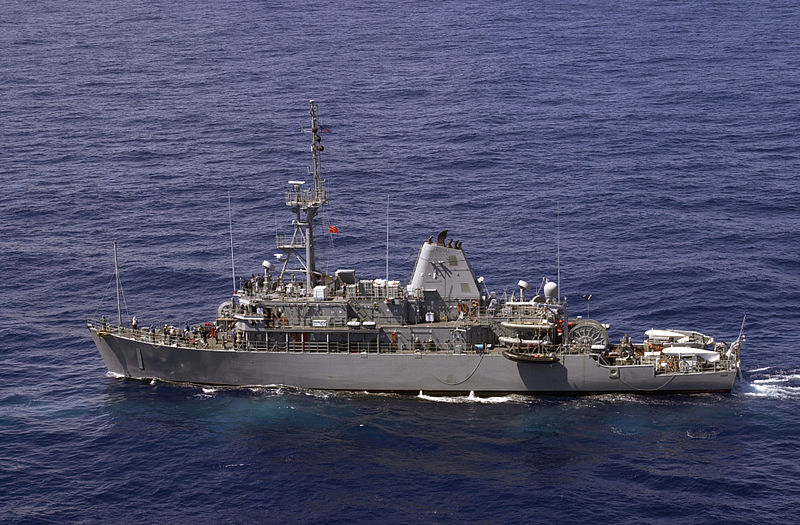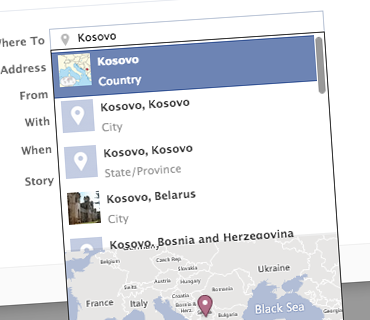By Andrew Kydd

I just attended an interesting forum sponsored by MadPac, the UW Madison pro-Israel group, on the Iranian nuclear situation. It’s always a pleasure to exchange ideas with my colleagues, Jon Pevehouse and Nadav Shelef, and it gave me a chance think about where we stand on this topic now that the US election is over. Increasingly, I think we are headed for a confrontation for two main reasons.
First, President Obama has committed himself to military action to stop or at least slow down Iranian acquisition of nuclear weapons. Presidents often make threats. These threats are argued to help commit a president to future action because if a leader backs down after making a threat he or she will suffer “audience costs”, that is, a loss of popularity. The idea is that the public, or at least some sectors of it, dislikes bluffing. Whether this is true or not is still somewhat up for grabs, although there is some survey and experimental evidence to support the idea. Because they don’t want to pay audience costs, presidents often make their threats vague, so they can weasel out of them if need be. Obama, however, has made his threats crystal clear. The main alternative to preventive strike is a policy of containment, that is, learning to live with the Iranian bomb. Obama has explicitly and repeatedly ruled this out, saying that the policy is not containment, but preventing Iran from getting a nuclear weapon. Of course, presidents sometimes bluff and back down. George W. Bush declared that a North Korean bomb was unacceptable, but vowing we would ne’er consent, we consented. However, Obama’s threat has been much more explicit than Bush’s, and the Israelis and Republicans will certainly hold his feet to the fire. Obama has also acknowledged that the window in which this could be achieved, absent a reversal on the part of Iran, is about a year. Therefore 2013 would appear to be the year of decision.
Second, Iran would prefer to have the US destroy its nuclear facilities rather than back down. This part of the argument is necessarily more speculative. It seems quite plausible, though. To back down in the face of US and Israeli threats would be to capitulate before the Great Satan. It would mean an enormous loss of prestige for the Islamic regime. Standing fast and enduring an airstrike, in contrast, would be an enormous propaganda victory. The perfidy of the Great Satan would be clear for all to see, Iranians would at least temporarily rally around the flag, and the regime could rededicate itself to rebuild the lost facilities and resume Iran’s progress towards nuclear capability. It might even provide an opportunity to openly embrace the goal of nuclear weapons, the need for which would be demonstrated by the airstrikes. The loss of the uranium enrichment facilities themselves is comparatively unimportant, because they have no direct value apart from their ability to provide fissile material for nuclear weapons. This value would be lost anyway if Iran were to capitulate to international pressure and agree to a deal that prevented it from enriching uranium to weapons grade. Therefore the payoff for Iran, as far as the enrichment facilities goes, is the same whether it capitulates or sees them destroyed in an airstrike. In either case, they fail to achieve their purpose. Thus the propaganda factor easily tips the balance in favor of resistance.
So I’m betting on conflict in the Persian Gulf in 2013. Any promising startups in the mine detection business?






0 comments
Again those facile assumptions about Iran and atoms.
You state that the centrifuges have no “value apart from their ability to provide fissile material for nuclear weapons”.
This is true if, and only if, the nuclear programme, is purely and exclusively a weapon programme,
I see no reason to doubt the stated reasons, power generation to increase value of fossil fuel exports, national prestige, and increasing the technological base by mastering the complete fuel cycle as allowed by the NPT.
The thing is, any state with a developed nuclear industry such as Germany, Sweden, Canada or Brasil is a para-nuclear state, that could have nukes within 6 to 18 months.
Japan has enough plutonium in stock for hundreds of warheads, more than Israel. Also a space programme, hence ballistic missiles.
The uranium currently produced is at 20% grade, instead of the 95% plus needed for a bomb. Also, if enrichedd, the present quantity of U235 would be sufficient only for a couple; a nuke or two is not a fully fledge operational nuclear strike force
The problem is trust. Even it were to fully agree and comply with agreements, an Iran having a full nuclear programme as allowed by the NPT would still be a para-nuclear state. One that Israel would still be afraid could change its mind at any time and produce weapons in less than a year.
Conversely, Iran has to trust that sanctions would be lifted and attempts at regime change stopped, and that proliferation is indeed the primary concern and not a pretext for harming the mullah regime.
I am pessimist about the parties having good faith in each other. However, a conflict is not imminent unless there is some change in the situation. Your cost-benefit analysis omits many factors; for instance, there is much more at risk for Iran than just the facilities, such as the military assets to protect them and infrastructure.
But good faith can be obtained, if the parties can accept that they are not hell bent on immediate nuke acquisition and regime change respectively.